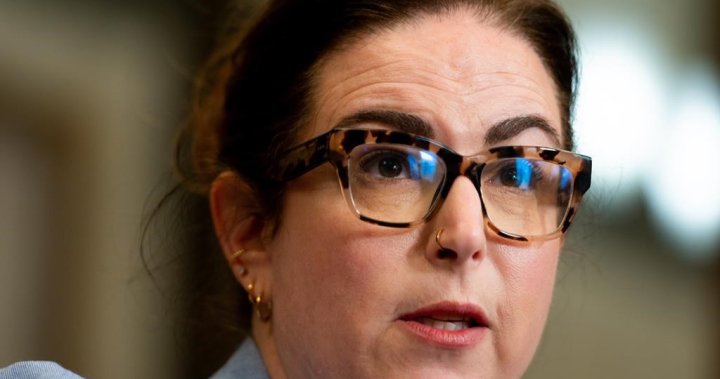Federal Addictions Minister Ya’ara Saks has expressed deep concerns about Toronto’s rejected proposal to decriminalize illegal drug possession, particularly due to the lack of limits placed on the possession of drugs and the refusal to make any changes. The proposal did not include age restrictions or limits on the amount of drugs a person could possess, raising concerns about the potential risks, especially for young people. Saks made the decision to deny the pitch after Toronto public health officials declined to address these concerns raised by department officials.
Toronto Public Health submitted its decriminalization request in January 2022 and updated it in 2023. Health Canada raised questions about the proposal, including the lack of thresholds for personal possession and the absence of age restrictions. Saks emphasized the importance of having clear limits on possession as a way to distinguish between personal use and trafficking, which falls under enforcement. The application also did not align with a similar pilot project in British Columbia, which had age restrictions and limited the decriminalization to specific illegal substances.
On May 17, Toronto Public Health was informed of Ottawa’s decision to reject the application, citing concerns about public health and safety as well as the lack of support from the Ontario government. The rejection came after British Columbia scaled back a pilot project that was aimed at destigmatizing drug use and combating the overdose crisis. The province limited the decriminalization to certain substances like heroin, fentanyl, cocaine, and methamphetamine. The rejection of Toronto’s proposal sparked debates over the effectiveness and appropriateness of decriminalization in addressing addiction and overdose issues.
Saks initially stated that Toronto’s decriminalization application was dormant and that nothing had been submitted for review. The agency informed Health Canada in early May that they would not be amending the proposal, leading to the rejection. The rejection was seen as a response to growing political pressure, including opposition from the Ontario government and concerns raised by various stakeholders about the potential unintended consequences of decriminalization. The rejection highlighted the challenges and complexities of implementing policies to address substance use and addiction at both the municipal and federal levels.
The rejection of Toronto’s decriminalization proposal has raised questions about the role of decriminalization in addressing addiction and overdose issues, particularly in the context of the ongoing public health crisis. The differing approaches taken by provinces like British Columbia and Ontario underscore the complexities of implementing evidence-based policies to address substance use. The rejection also points to the need for better coordination and communication between municipal and federal agencies when it comes to addressing public health issues. Moving forward, stakeholders will need to work together to find innovative solutions to the addiction and overdose crisis.


